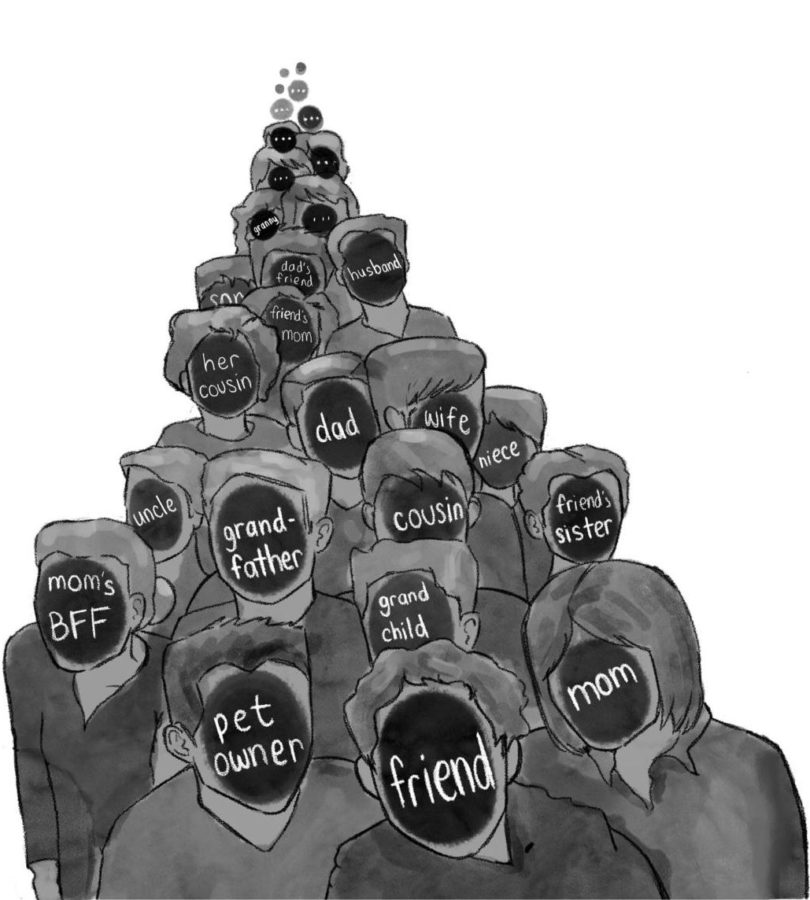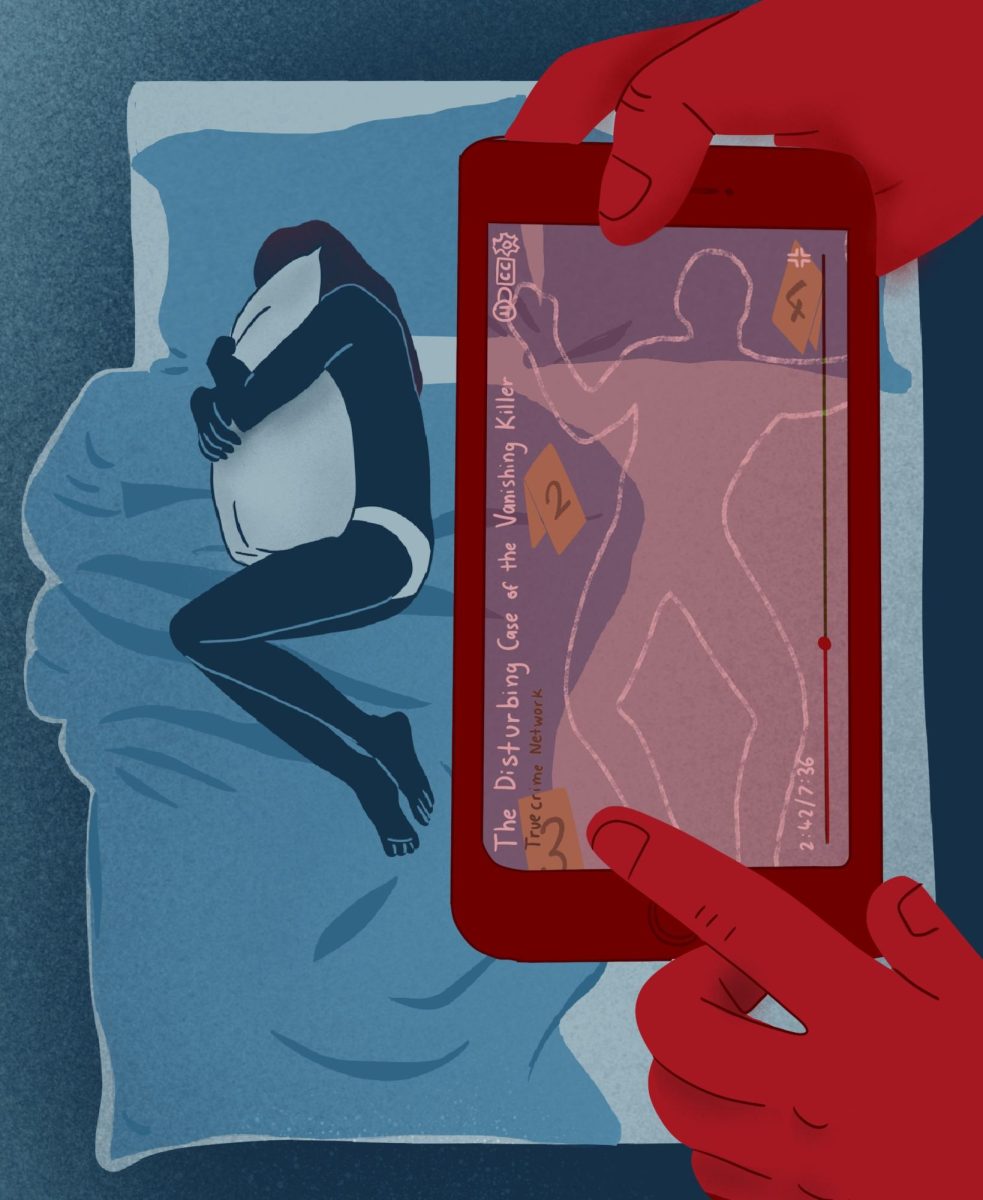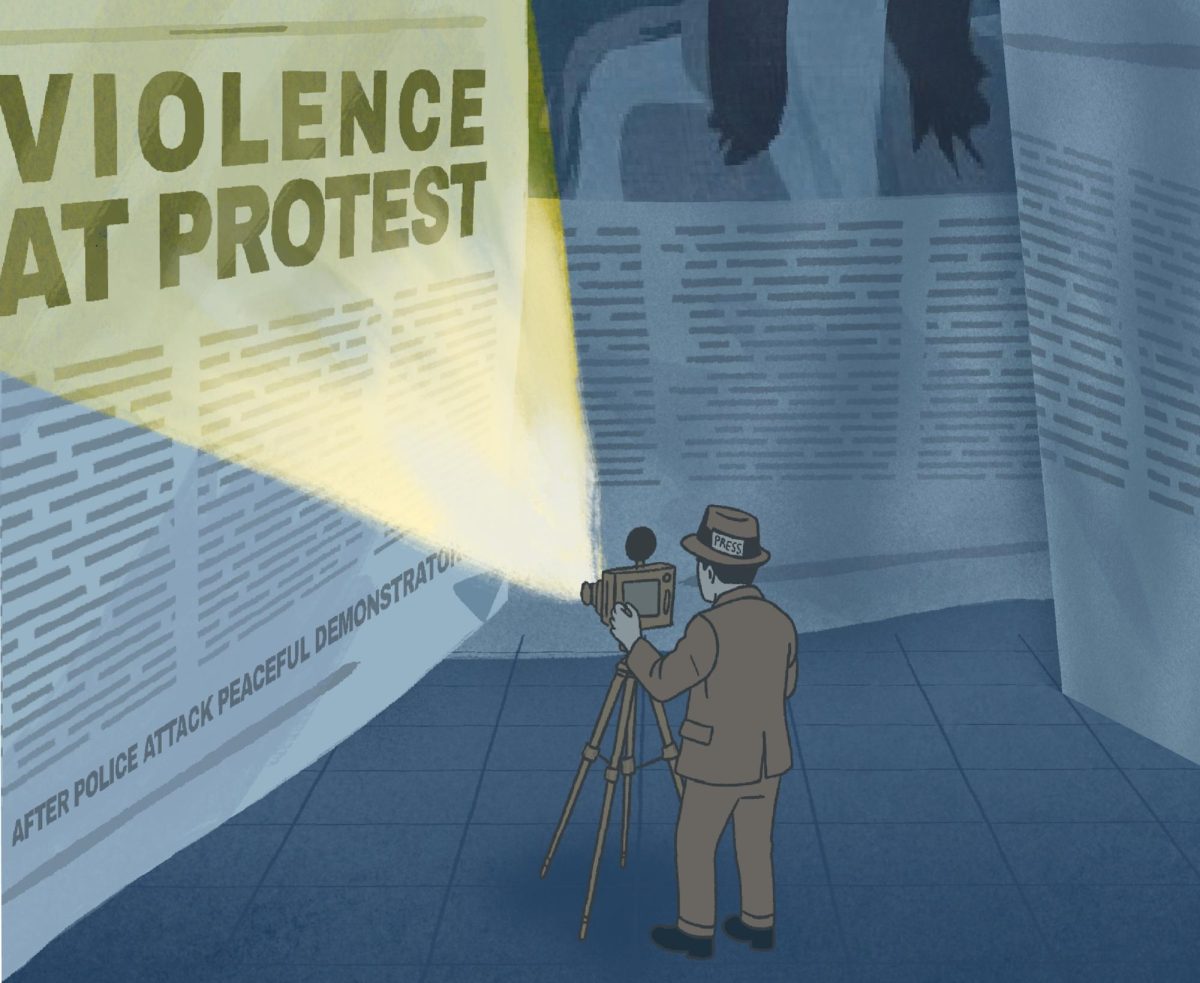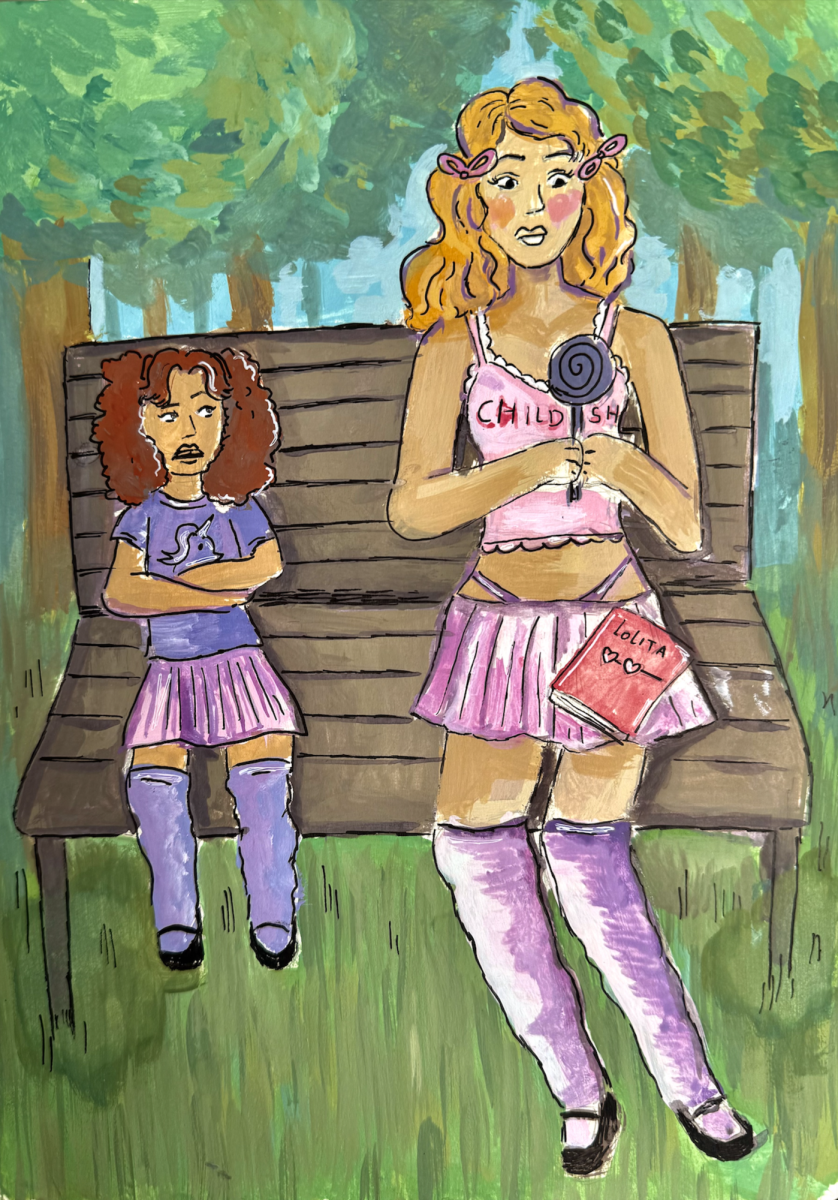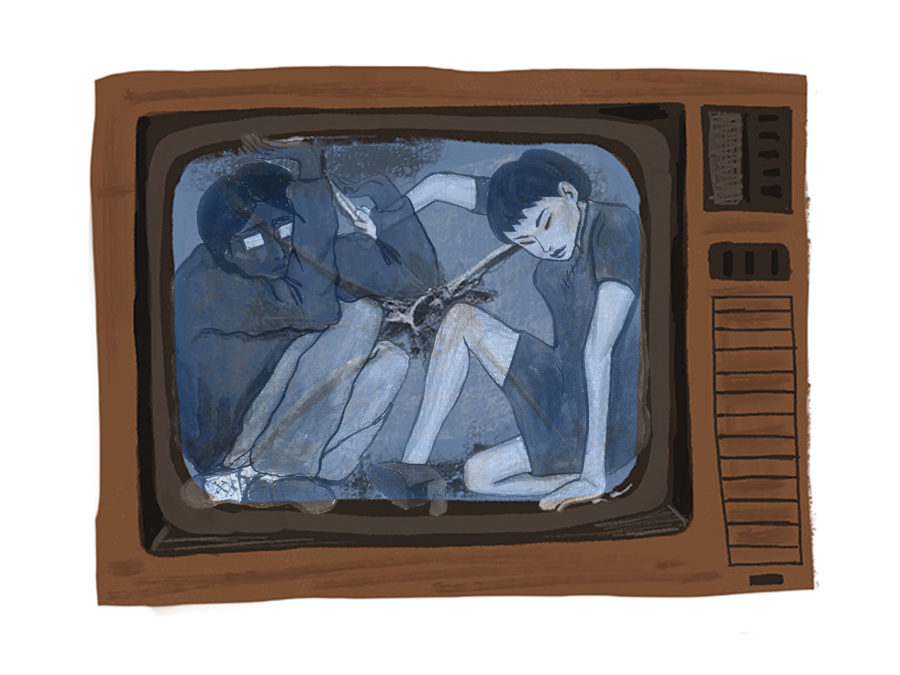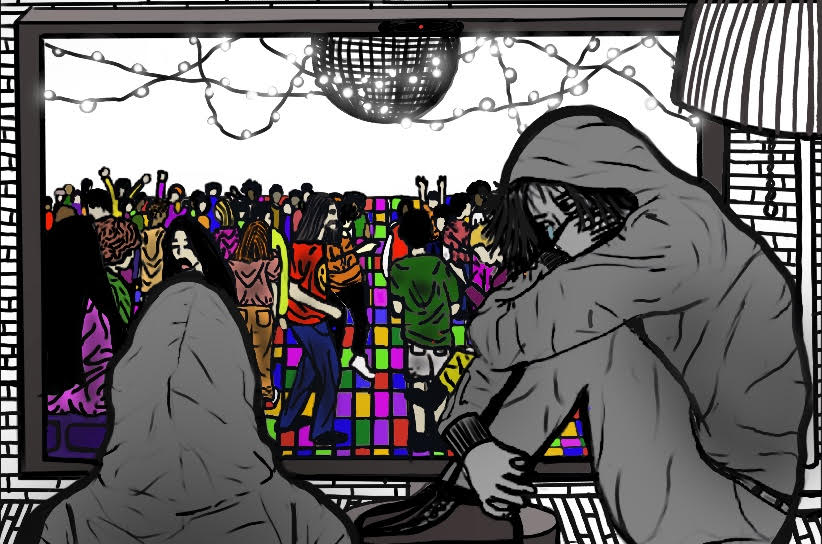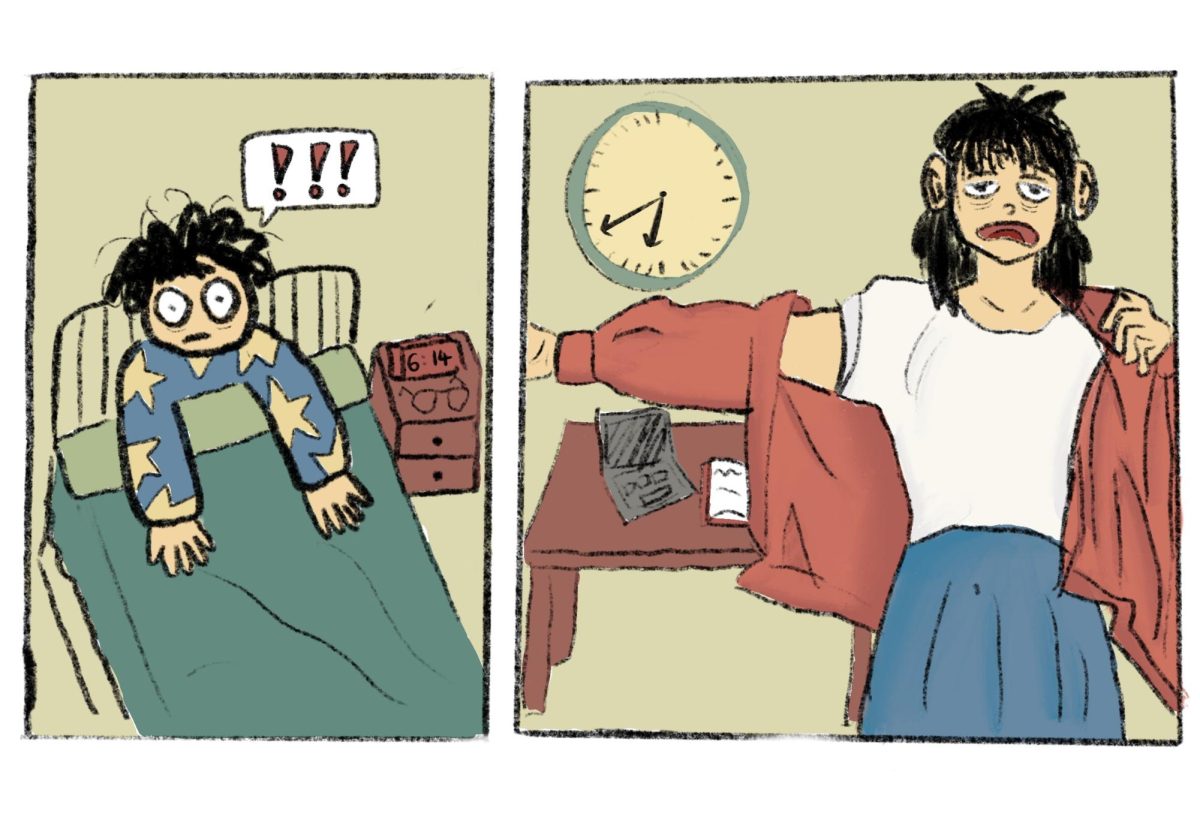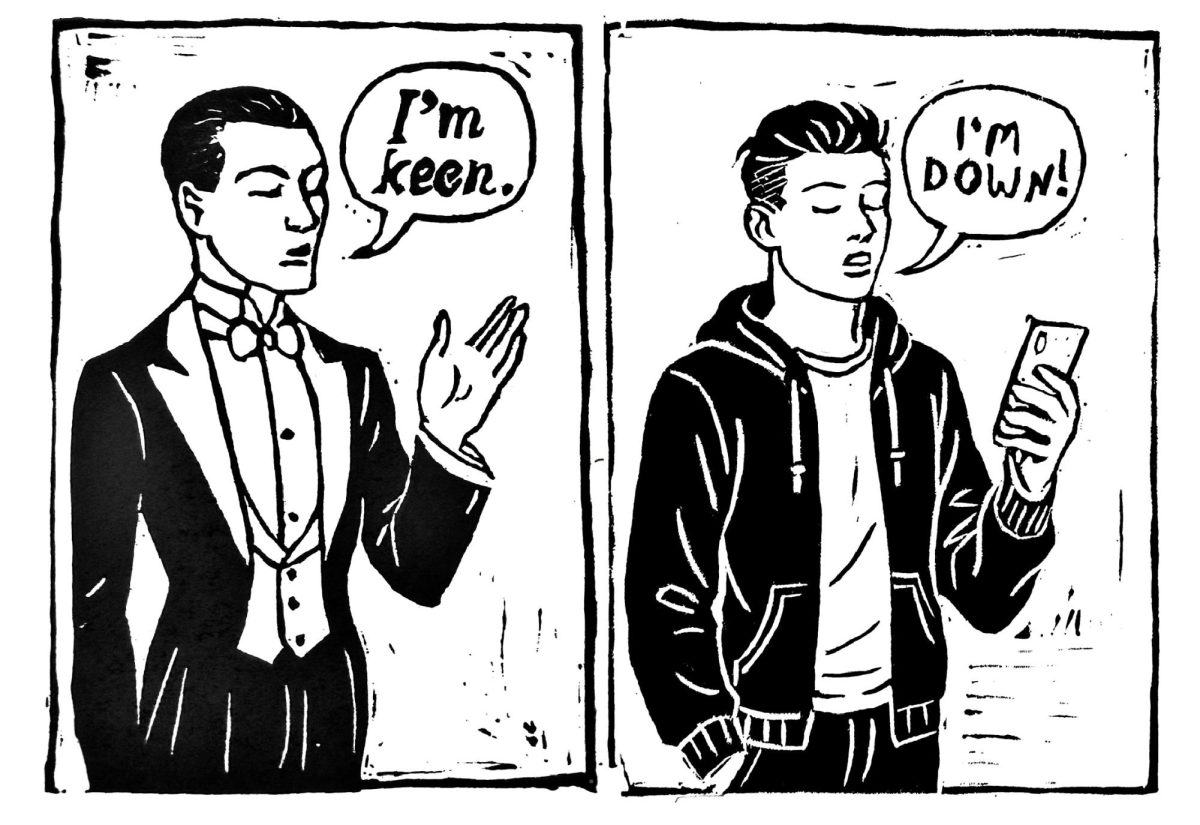Audiences enjoy a mystery. Our fascination with a case to solve is a continuous and ever-present element of human nature. We crave the satisfaction that comes from guessing the killer in a murder mystery novel or the thrill of a crime television show cliffhanger. But, do we cross a moral line when we find the same or even greater exhilaration from consuming true crime entertainment?
To label media that labels real-life crime as “entertainment” might be unethical in itself—what makes a retelling of some of the most horrible acts of humanity “entertaining”? As true crime gains popularity, we grow dangerously accustomed to seeing those involved as mere characters to discuss and theorize about.
The pertinent issue of true crime is what lures us towards the genre: it involves real people. Our curiosity is an enduring one; from the idolization of serial killers in the 20th century to the recent heightened publicity of murder trials, we have long been captivated by the genre.
According to Dr. Lettieri of Psychology Today, true crime offers a “psychologically safe way of observing on-screen characters who act out the dark elements of our nature as we temporarily identify with them at a virtual distance.” In other words, we are immersed in the chilling stories while knowing that we are not personally affected.
Observing from a distance behind the safety of a screen seems to have no effect on the viewer or the victim. However, the essential middleman in this interaction—creators who broadcast these cases to viewers—has, concerningly, the most to gain from the genre.
Since the 2010s, true crime podcasts have gained a significant following, accounting for a quarter of Spotify and Apple Podcasts list of top-rated shows (statista). With this fame comes large amounts of revenue from advertisements, brand partnerships, as well as merchandise. My Favorite Murder, a popular true crime podcast, amasses a grand $15 million yearly (Forbes). None of this money goes to the victims’ grieving loved ones—instead, the worst moments of their lives are commodified and replayed for mass consumption without a cent in return.
Another form of media that benefits from the true crime genre is television. DAHMER is a Netflix biographical TV show that details the life and crimes of well-known serial killer Jeffrey Dahmer. At the time of its release in 2022, the series earned 196.2 million streams in its first week, breaking Netflix’s record for the biggest ever opening week of a new show.
Rita Isbell, whose brother Errol Lindsey was killed by Dahmer, criticizes the show by saying that “if the show benefited [the victims] in some way, it wouldn’t feel so harsh and careless.” Isbell continues, “it’s sad that they’re just making money off of this tragedy. That’s just greed.”
Another issue stems from how creators frame their content. By using catchphrases, a captivating tone, and dramatic editing, they push their audience to feel that they are able to aid in ongoing cases, acting as amateur sleuths. The viewers’ curiosity pushes them to harass the real people involved in the case, such as the family members and friends whom they think are suspicious based on speculation, possibly swaying public opinion and disrupting investigations.
A recent example is the 2022 University of Idaho killings, where four college roommates were murdered in their shared home. In the aftermath, creators were quick to release theories through Youtube videos, leading to online harassment of the surviving roommates. Comments such as “something fishy about the two survivors” and “totally screams jealousy and killer face” flooded the Instagram posts of the victims and survivors. Viewers became convinced the survivors were somehow guilty, shifting focus away from the now-convicted killer, Bryan Kohberger.
As producers and creators vigorously release content, many question whether creators are simply capitalizing on shock value. The reality of the crime is often lost on the audience as they fixate on how interesting or uniquely brutal the criminal is—continuing the cycle of placing power in the hands of the criminal instead of the victim.
By indulging in the true crime genre and obscuring the line between entertainment and reality, are we re-traumatizing the survivors and loved ones of actual crimes? No matter how engrossing the content, we cannot forget the grief felt by the people left behind by victims whose lives were cut short, whose stories are broadcasted for us to consume.



